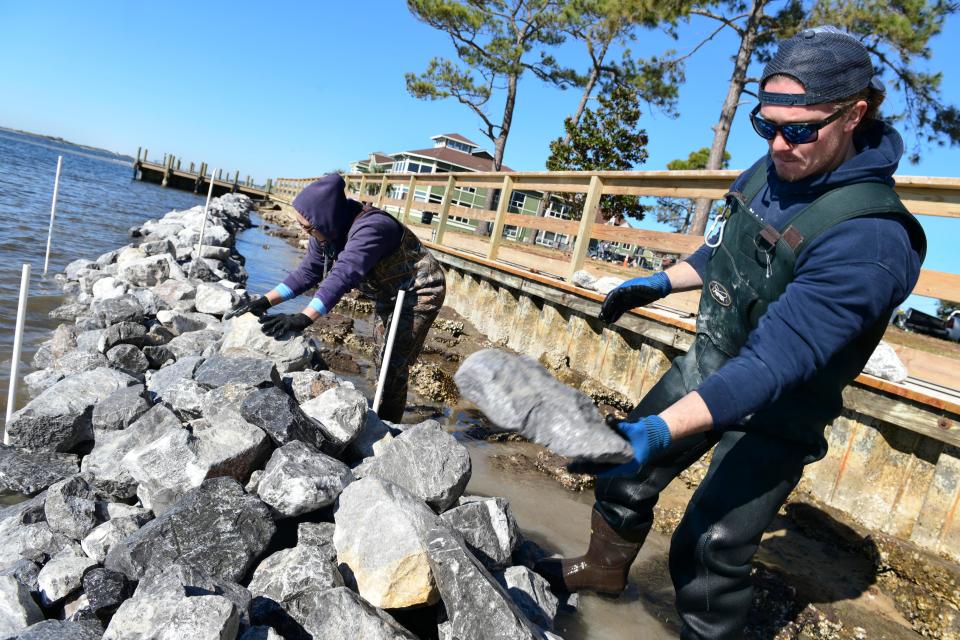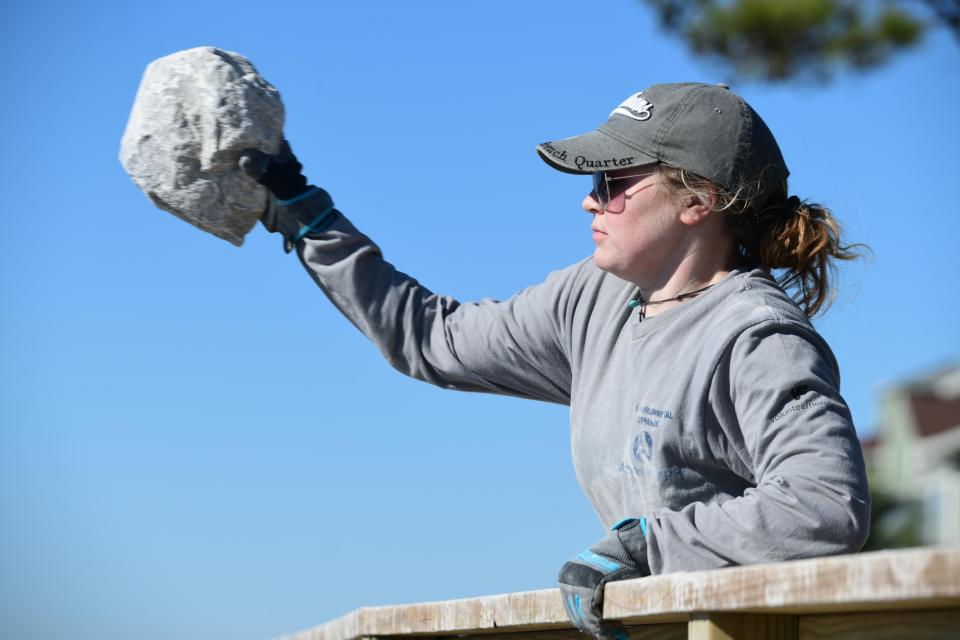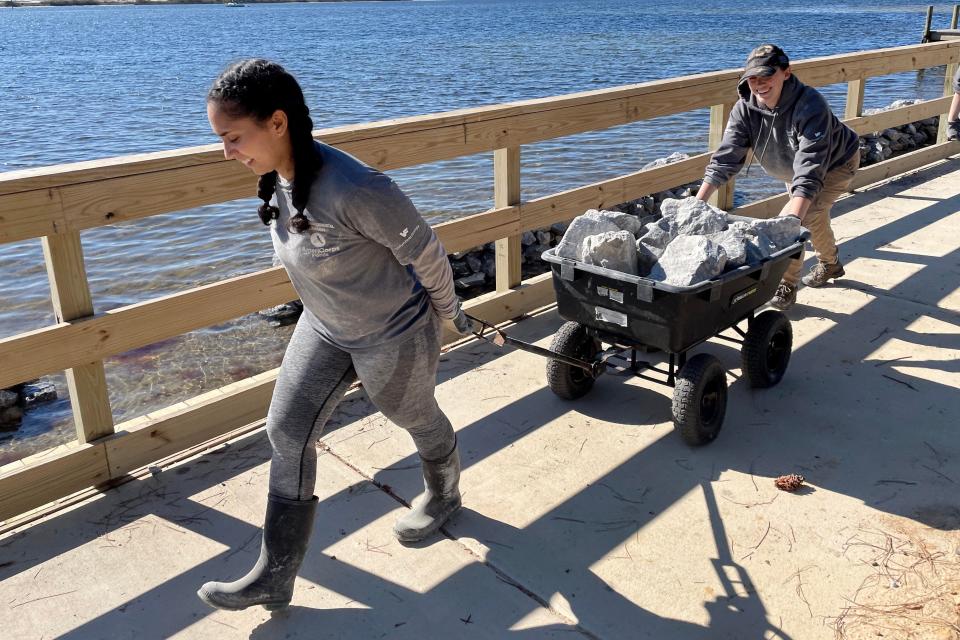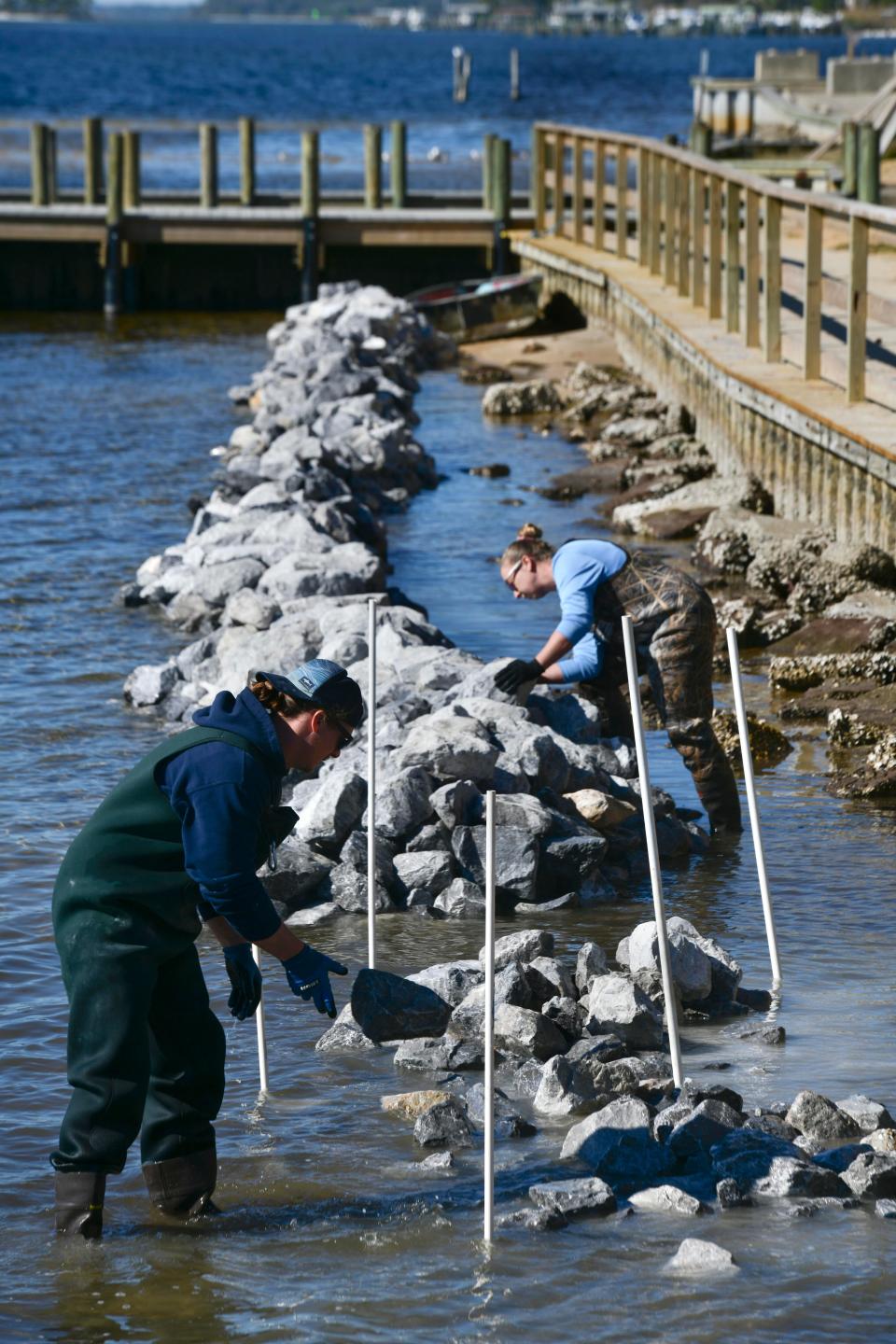Breakwaters with new technology to slow erosion, provide habitat installed at Liza Jackson Park
FORT WALTON BEACH — As part of a major project slated to be completed in May, Choctawhatchee Basin Alliance members and partners on Thursday began installing the first segment of shore-protecting and habitat-forming breakwaters near the shore of Liza Jackson Park.
When completed, the breakwaters will extend 600 feet, or nearly the entire length of the park’s shoreline along Santa Rosa Sound, Alliance Director Alison McDowell said. The only gap will be next to the dog park area of Liza Jackson Park, which is at 338 Miracle Strip Parkway.

Related story: Tough as nails, living shorelines abound in Okaloosa and Walton counties
More environmental news: Florida has lost 44% of its wetlands since 1845. What is the environmental impact?
The breakwaters are made of limerock and a new technology, piloted by the University of Florida, called “prisms,” which resemble cages and are made of hardened, burlap-like fibers. The prisms will contain natural grout and recycled oyster shells donated by local restaurants.
McDowell said the breakwaters will help protect the park’s shore and seawall from erosion by slowing waves in the sound. They’ll also provide habitat for oysters to settle on, as well as habitat for many other marine species, she said.

One adult oyster can filter pollutants from up to 50 gallons of water a day, she said.
The nonprofit Choctawhatchee Basin Alliance of Northwest Florida State College is based in Santa Rosa Beach. The breakwaters’ project was made possible thanks to a $25,000 grant from the Florida Fish and Wildlife Conservation Commission, additional funding from Islanders Coastal Outfitter on Okaloosa Island and support from the city of Fort Walton Beach.

About 45 volunteers, including AmeriCorps members and employees from Islanders Coastal Outfitters, helped build the prisms for the breakwaters, and many volunteers will help complete the project, McDowell said.
Later this year, more than 1,000 students from area elementary schools who participate in the Alliance’s “Grasses in Classes” program will make field trips to Liza Jackson Park and plant saltmarsh grasses on the shore side of the breakwaters, McDowell said.

“The grasses will provide extra resilience for the shoreline to withstand storms and waves, and will also provide habitat,” she said.
This article originally appeared on Northwest Florida Daily News: Liza Jackson Park gets breakwaters to protect shoreline, slow erosion

